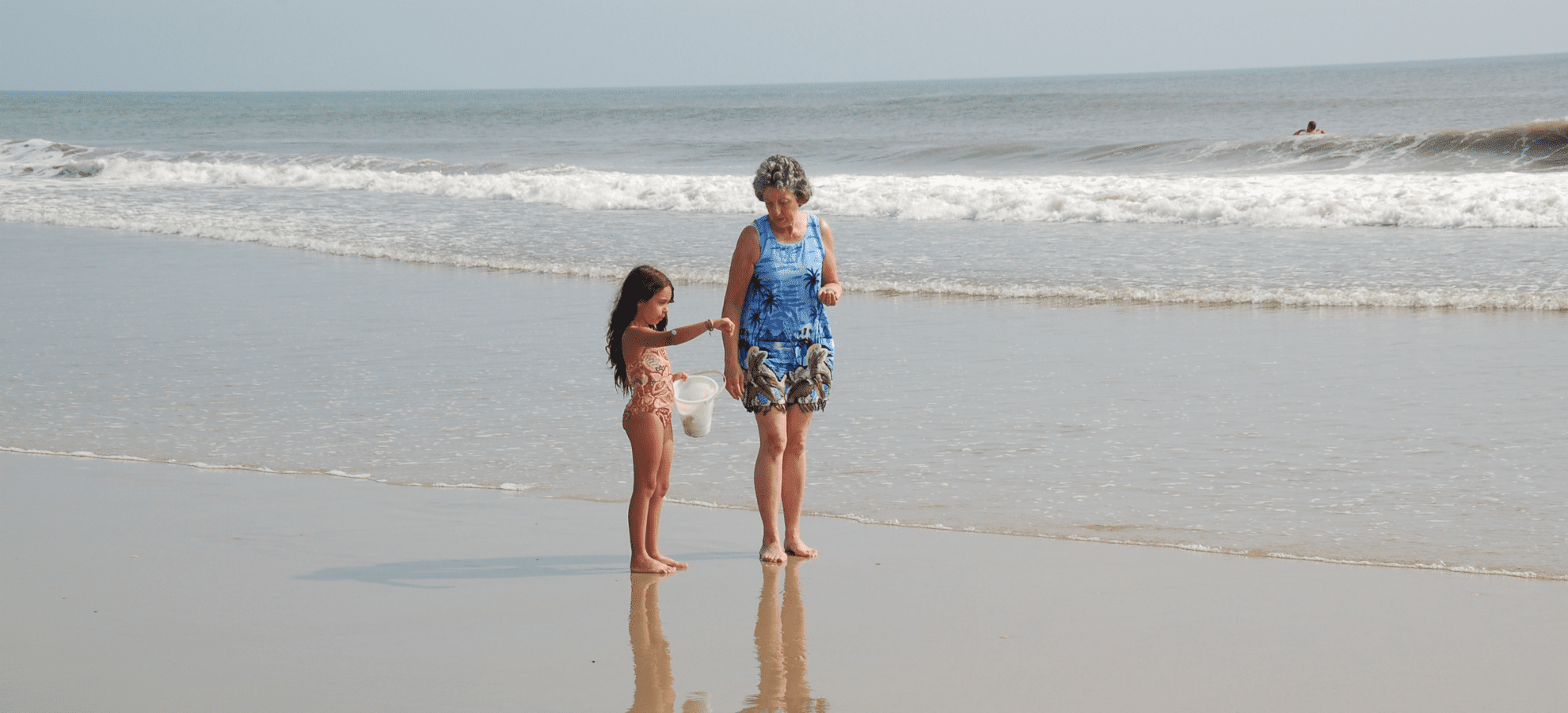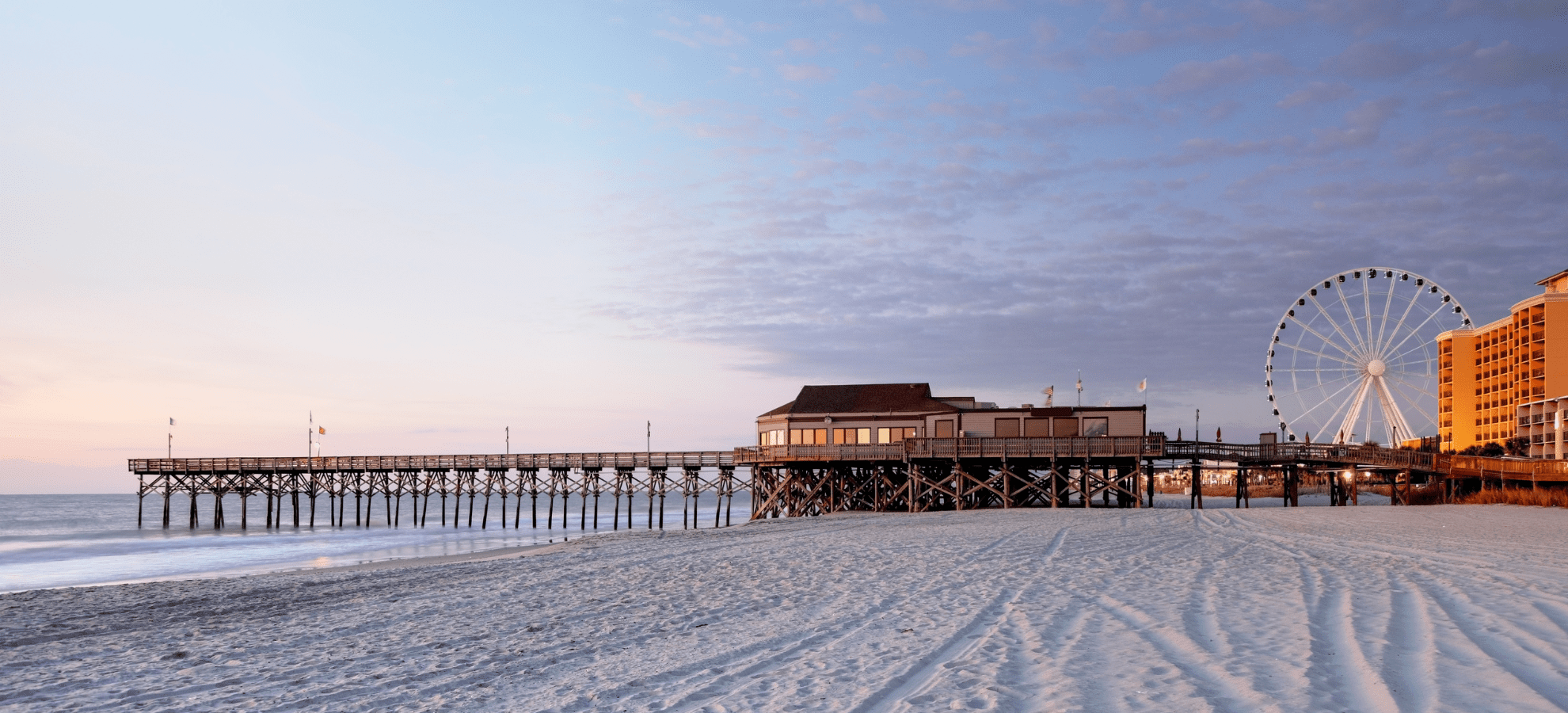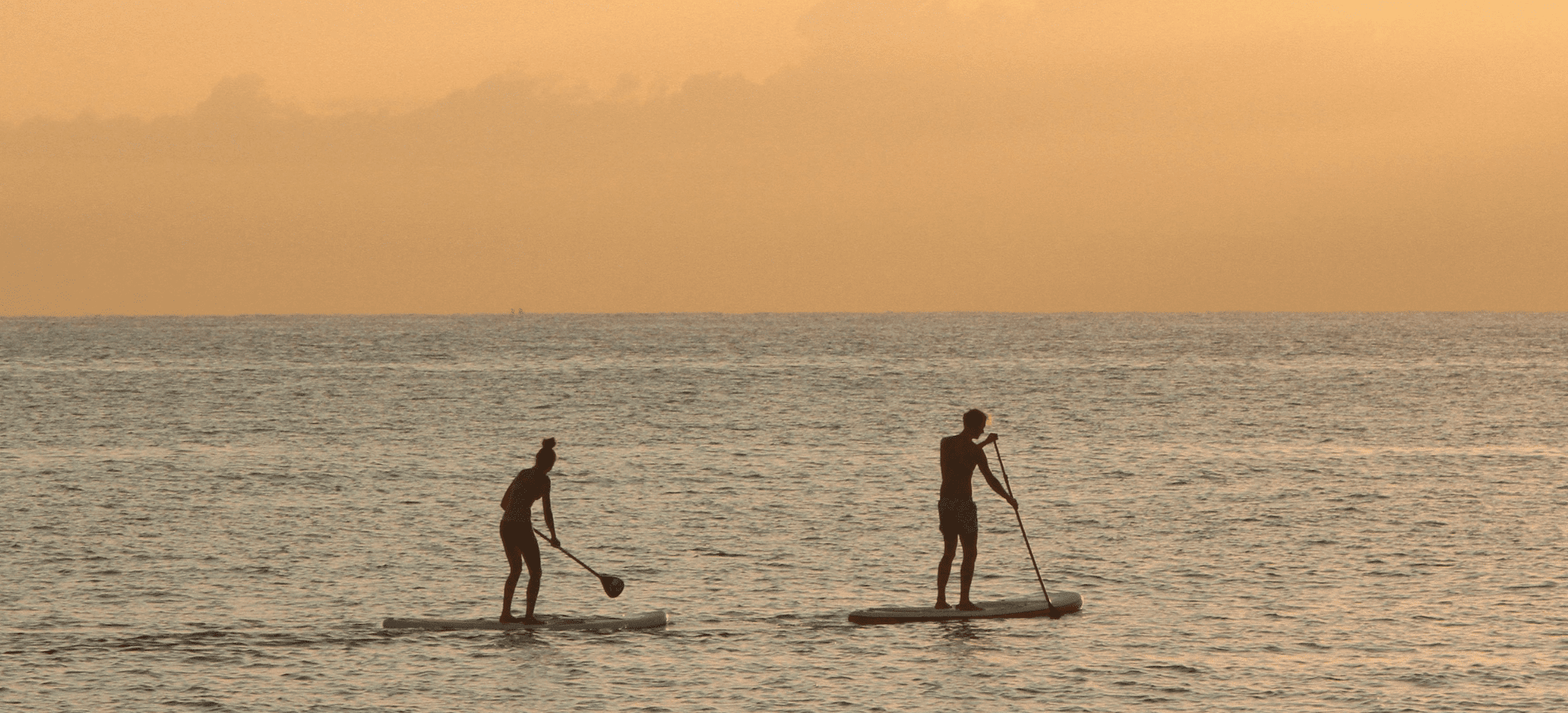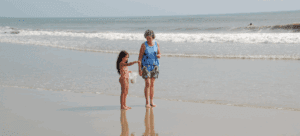U.S. Army and Green Beret Special Forces Veteran
Celebrate Our Veteran gives voice to the stories of the U.S. military veterans living amongst us. The actions of these brave and dedicated people, who have served our country both in active military duty as well as administrative positions, have and continue to contribute to the protection and preservation of us and our country.
We hope that this section of our paper is an opportunity for our community to hear and see veterans with new eyes, and for veterans to receive recognition and honor for their experiences and life journeys.
This month’s Celebrate Our Veteran recounts the story of Gary Ramsey, as told in his own words.
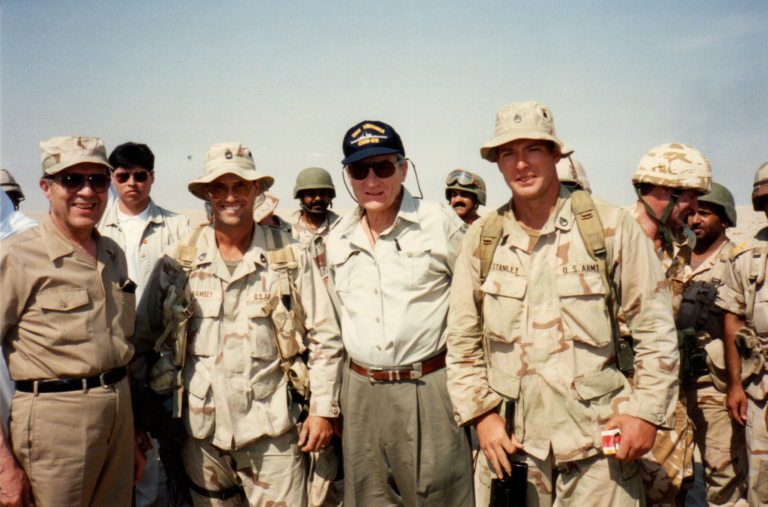
by Melissa LaScaleia
“I joined the military in 1985 when I was twenty-nine years old. I spent about three-and-a-half years in the Army with the 82nd Airborne Division, a paratrooper unit.
After my tour, I joined the Green Berets, a Special Forces unit, and was stationed out of Fort Campbell, Kentucky for ten years.
The Green Berets act as advisors and trainers in other countries to U.S. allies. Typically, a team of twelve Green Berets will be sent to work with several hundred foreign soldiers to help instill higher standards and operating procedures.
The Green Berets have teams of engineers, weapons specialists, communications specialists, and medics. Sometimes we’ll engage in nation building— things like drilling a big well, or supporting public infrastructure; sometimes we engage in direct contact operations. Anything to gain their trust so we can be allies with them. It’s what we call a forced multiplier— it’s the concept of taking a small number of men with specialized skills to make an alliance with a foreign military, and in so doing, we have an entire army at our disposal which saves us using our own troops. In exchange, we provide specialized services in the arenas of warfare, teaching English, engineering, medical assistance, communications, weapons, and demolitions.
All Green Berets have to learn a second language, and I learned to read, write and speak Arabic.
When Iraq invaded Kuwait in the ’90s, there were thirty-five countries that rose in opposition, with the U.S. being the lead player in the campaign. Operation Desert Shield was the buildup of all the troops; Operation Desert Storm was the actual combat phase of what was called the Gulf War.
In 1990, 5th Special Forces Group was selected to go to Saudi Arabia to help liberate Kuwait, and I was a part of this group. We were sent to work with the Syrian Army, and acted as advisors, reporting back to our commander if the Syrians were really on our side or not, because we weren’t sure if we could trust them.
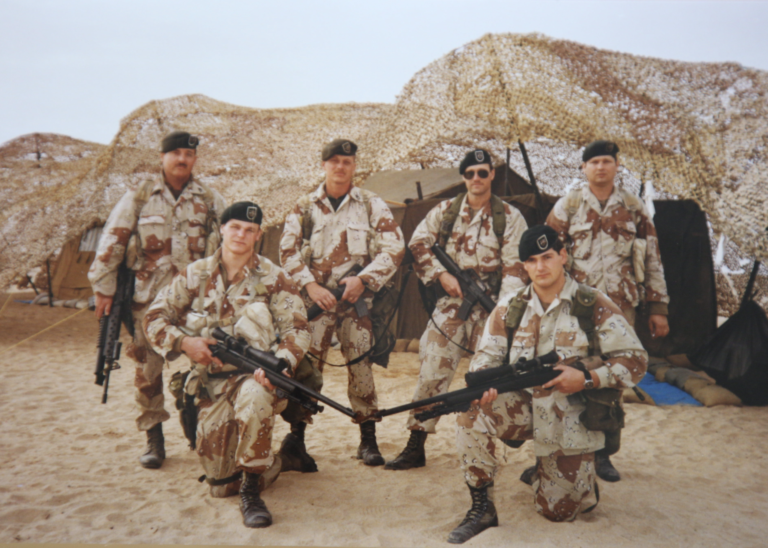
We had a full-size company of Green Berets encamped outside of the Syrian Army’s camp. And we could tell they weren’t receptive to us and really didn’t want us there. So we established a twelve man team and left them outside of the camp to keep an eye on things, while the rest of our company, including myself, went to work with the Egyptian Army in Saudi Arabia.
The Egyptians were conducting the fighting, and we were acting as advisors and support. If they needed close air support, we could radio that in to offer greater protection. They treated us really well. They fed us and took care of us just like we were one of theirs. And we entered Kuwait with them.
There existed a huge dirt berm that stretched the length of the border between Saudi Arabia and Kuwait— it was like two giant double hills. We had to blow holes through this to make passageways and drive through them to enter Kuwait.
As soon as we drove through, a lot of the Iraqis surrendered, they didn’t want to fight. So we just kept moving forward with little opposition until we met a line of tanks. Then the Egyptians and Iraqis got into a tank battle, while we stood by on the sidelines.
It was awesome. We sat in awe at the end of the line of the tanks watching them fire. It lasted a couple of hours, and the Egyptians won. Then we moved on to Kuwait City and found ourselves in the middle of a parade in greeting. At this point, the Egyptians wanted to stop. They didn’t want to go on to Baghdad or Iraq; they believed they were victorious, and didn’t want to infringe on another Arab country any more than they had to. They were victorious, but we saw that Iraq would try to invade again, and they did.
It was in 1994 that we went over again, and this time we landed in Kuwait. We connected with our counterparts on the ground, this time, Kuwait troops. We lined troops up along the border of Kuwait in opposition to an Iraqi invasion. With our presence and tactics, we convinced the Iraqis that they really didn’t want to start this war again. We would call in a few aircraft to fly over to let them know that we were here and present. And they backed off without an exchange of fire.
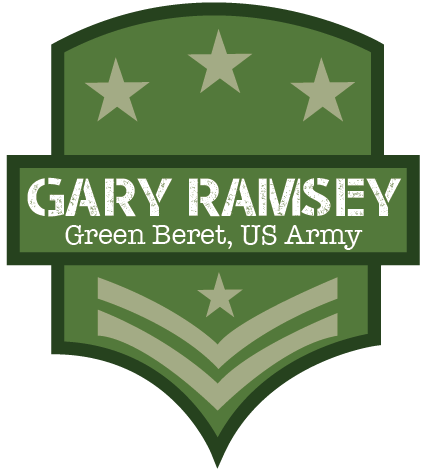
Over the years, I was in and out of the Middle East all the time. I would go over for two weeks, working as a courier for the embassy in Kuwait. We would set up training for the Kuwait military, what we called MTT Mobil Training Team. We also arranged logistical preparations for the training groups in country before they arrived.
So we’d orchestrate support, get a training plan together, and then return to the States and present that to the commanders. Then we’d get on a plane a few weeks later and get more details ironed out. I did this for about ten years. And I also did it in Qatar, Bahrain, Saudi Arabia, Kuwait, and Kenya.
Being in the 82nd Airborne Division, it was a large group, and there wasn’t a lot of rapport. You did what you had to do. In Special Forces, it’s generally a group of twelve men, and it becomes a tight knit group.
You know their mannerisms and what they’re going to do in particular situations. The camaraderie is beyond anything you can imagine. To this day I’m still in contact with them. That’s what drove me all those years. It was so rewarding working together, going overseas and being able to train their soldiers so that they can do it on their own.
We would train their military how to successfully jump out of an aircraft and not break any bones. That was an adventure.
When you translate from English to Arabic and you try to use the same terminology, it doesn’t translate to have the same meaning. We were trying to communicate to them that when you jump out of an airplane and hit the ground, you need to release the riser on your parachute so that the parachute doesn’t reinflate and drag you.
The men were jumping out of the plane and as they got close to the ground, they kept releasing the riser, and they would bounce all over the ground. No one was hurt, but we couldn’t figure out what was happening at first. So we decided to just use a professional interpreter for the rest of the lessons.
It was always nice to get packages. When you’re deployed, you live for the mail call. It didn’t matter what was in it. You could always trade with someone else. And for entertainment, we’d listen to Baghdad Betty, she was the propaganda for Iraq.
She would try to insult the Americans, breaking our morale while lifting that of the Iraqis, but she missed the mark a bit because she’d say things jeeringly like, “Movie stars like Bart Simpson are making love to your wife while you’re over here, ha!” We looked forward to her everyday. She played good music too.”











